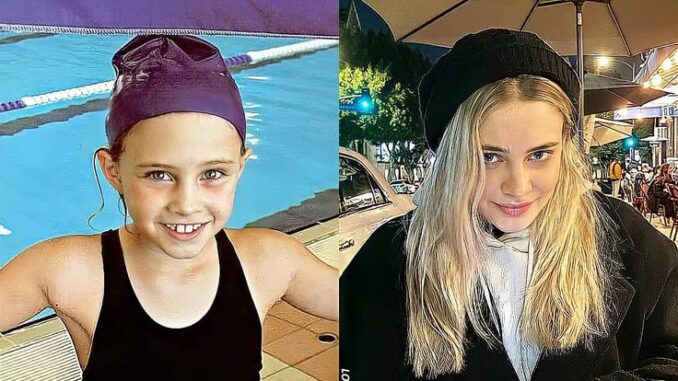
The After series has always been about chaos and chemistry. From the moment Tessa Young and Hardin Scott locked eyes on a college campus, audiences knew they were in for a stormy ride. What started as a young adult romance packed with passion and conflict quickly turned into a deeper, darker tale of emotional scars, family trauma, and a love that seemed just as destructive as it was magnetic. But with After Everything: The Final Chapter, the saga finally finds closure — and, surprisingly, peace.
Hero Fiennes Tiffin, who plays Hardin, rises to the occasion with a nuanced, mature performance. No longer the angry young man smashing furniture or spewing cruel words, this version of Hardin is quieter, broken, and searching. The rage has cooled into regret, and the self-destruction has shifted into self-awareness. Natalie is strong, self-contained, and entirely uninterested in rekindling any sort of connection. She’s moved on. But her confrontation with Hardin is one of the film’s most powerful scenes — not because it ends in reconciliation, but because it doesn’t. For once, Hardin doesn’t get what he wants. And he doesn’t deserve to. That’s the point. It’s a refreshing turn in a series that often blurred the line between passion and toxicity. Here, the message is clear: love is not enough unless it’s paired with growth and accountability.
He’s no longer trying to win Tessa back — at least not directly. He’s trying to become the kind of man who could win her back. And that distinction makes all the difference. This introspective arc may feel like a quieter ending than many fans anticipated, but it is undoubtedly a more honest one. The film resists the urge for grand gestures and instead favors small, human moments: an apology, a conversation, a look in the mirror. These are the pieces of real change, and they’re handled with surprising maturity.

Without spoiling too much, the final scenes of After Everything bring the saga full circle in a way that is both satisfying and symbolic. We see glimpses of a future — one that suggests healing, partnership, and, finally, a stable love. It’s not a fairytale ending. There are no fireworks, no dramatic airport reunions, no shouting confessions in the rain. But that’s precisely what makes it perfect. It respects the characters’ journeys. It acknowledges the damage that’s been done. And it leaves just enough room for hope.
From a filmmaking standpoint, After Everything is noticeably more polished than its predecessors. The cinematography is softer, the music more subdued, the pacing more deliberate. Director Castille Landon, who also helmed After We Fell and After Ever Happy, shows growth in her storytelling. She lets the silences speak, the glances linger, and the emotional weight settle in.
Even the script — which in past films leaned heavily into melodrama — feels more restrained and thoughtful here. There’s less shouting and more listening, less chaos and more reflection. And perhaps most importantly, the movie understands that endings don’t have to be explosive to be meaningful. Sometimes, the best ending is simply a new beginning — one built not on passion alone, but on trust, patience, and hard-earned wisdom.
For better or worse, the After series has always sparked strong opinions. Some critics dismissed it as unhealthy romance fodder, while fans defended its raw portrayal of flawed people trying — and often failing — to love each other well. But there’s no denying the cultural impact it made, especially among Gen Z audiences who resonated with its messy, modern take on love. After Everything may not tie every loose end in a perfect bow, but it offers closure in a way that feels authentic. It lets its characters grow. It trusts its audience to appreciate a more subtle, grounded form of resolution. In that sense, the film isn’t just a conclusion to Tessa and Hardin’s story — it’s a quiet celebration of the fact that even the most troubled people can choose to be better. And sometimes, that’s the most romantic thing of all.
